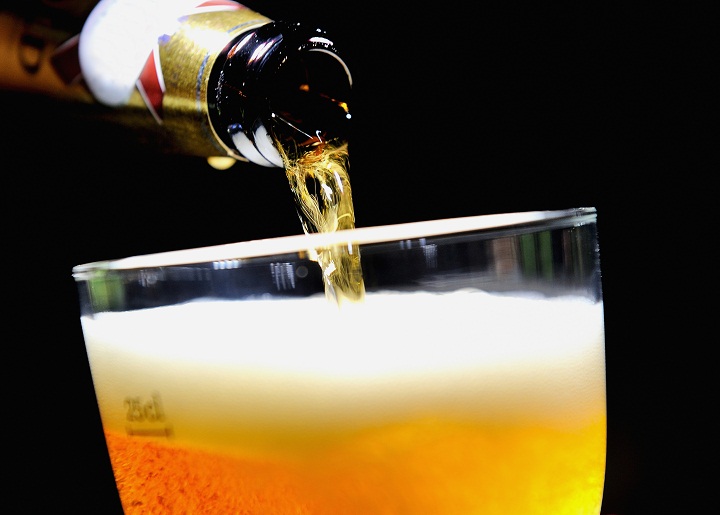TORONTO – They reached for the booze over the water and kept drinking and drinking. Does that sound familiar?

British scientists say a group of mice with a faulty gene had a taste for alcohol, willing to push a lever relentlessly to get more until they were drunk and had difficulty moving. They say their findings may help researchers understand why some of us love alcohol while others don’t.
“It’s amazing to think that a small change in the code for just one gene can have such profound effects on complex behaviours like alcohol consumption,” said joint lead author, Dr. Quentin Anstee.
READ MORE: Could personality in childhood predict how teens will respond to drinking?
“We are continuing our work to establish whether the gene has a similar influence in humans, though we know that in people, alcoholism is much more complicated as environmental factors come into play,” he explained in a statement.
A consortium of five universities – Newcastle University, Imperial College London, Sussex University, University College London and University of Dundee – took part in the study.

Get weekly health news
The group introduced small mutations to the genetic code of rats then tested their alcohol preference. That’s when they discovered the gene – called Gabrb1 – and the way it manipulated alcohol preference over water.
The normal mice without the tweaked genes showed no interest for alcohol and drank very little when they were presented with water or booze.
READ MORE: Teens’ drinking habits influenced by Hollywood movies
But the mice with the Gabrb1 gene typically went for the alcohol – almost 85 per cent of their daily fluid came from drinks containing alcohol that was about as strong as wine. They’d keep pushing the lever that dispensed the booze, drinking enough to “become intoxicated and even have difficulty” in coordination.
Keep in mind, mice typically don’t like the taste of alcohol. ABC News reported that these mice with the mutation were drinking the human equivalent of a bottle of whiskey a day.
The researchers said the Gabrb1 gene is linked to the region of the brain that controls pleasurable emotions and reward. Their next steps are to modify this process again in mice and then try it on humans.
READ MORE: Alcohol advertising linked to ‘increased’ drinking in adolescent girls, Canadian doctor warns
Ultimately, they say their research – it’s a decade-long project – could shed light on how to identify people most at risk of developing an addiction.
The study was published Tuesday in the journal Nature Communications. Read the full study here.
carmen.chai@globalnews.ca
Follow @Carmen_Chai






Comments